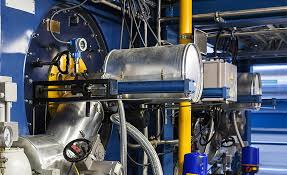electric steam boiler manufacturer suppliers
Electric Steam Boiler Manufacturer Suppliers An Overview
Electric steam boilers are increasingly becoming a preferred choice for various industrial applications due to their efficiency, reliability, and environmental benefits. These boilers produce steam through electric heating elements instead of traditional fuel sources, making them an excellent option for businesses looking to reduce their carbon footprint and comply with stringent emission regulations. This article explores key aspects of electric steam boiler manufacturers and suppliers, highlighting factors that businesses should consider when selecting a supplier.
Understanding Electric Steam Boilers
Electric steam boilers operate by converting electrical energy into steam through resistance heating or electrode heating methods. They are available in various sizes and capacities, catering to different industrial requirements, from small-scale operations to large manufacturing facilities. The benefits of electric steam boilers include higher efficiency rates, minimal maintenance, and an ability to respond quickly to load changes.
Key Industrial Applications
Electric steam boilers are versatile and find applications across numerous industries, including food processing, pharmaceuticals, textiles, and more. They are often used for heating processes, sterilization, and generating steam for power generation. Due to their compact size and ability to function without combustion, they are ideal for facilities where space is limited and emissions must be controlled.
Selecting the Right Manufacturer Supplier
When choosing an electric steam boiler manufacturer or supplier, several factors should be considered
electric steam boiler manufacturer suppliers

1. Reputation and Experience Research the company’s history, reputation, and experience in manufacturing electric steam boilers. A well-established supplier with a proven track record is generally more reliable.
2. Product Range Look for suppliers who offer a wide range of models and custom solutions. This ensures that you can find a product that meets your specific steam generation requirements.
3. Quality Standards Confirm that the manufacturer adheres to industry standards and certifications, such as ISO or ASME. Quality assurance is vital for ensuring safety, efficiency, and longevity.
4. Technical Support and Services Evaluate the level of customer service and technical support provided by the supplier. Access to knowledgeable support can help in troubleshooting issues and ensuring optimal performance.
5. Cost and Warranty Compare pricing among different suppliers and inquire about warranty options. While cost is important, it should not compromise quality. A good warranty can provide peace of mind regarding your investment.
6. Installation and Maintenance Consider whether the supplier offers installation services and ongoing maintenance options. Proper installation and regular maintenance are essential for the safe and efficient operation of electric steam boilers.
Conclusion
The growing demand for electric steam boilers reflects a broader trend towards sustainable and efficient industrial practices. By partnering with reputable manufacturers and suppliers, businesses can ensure they have access to high-quality products that meet their steam generation needs. As industries continue to evolve, the importance of selecting the right electric steam boiler supplier will remain central to achieving operational efficiency and environmental responsibility.
-
Top Electric Steam Boiler Manufacturers - High Efficiency SolutionsNewsJul.30,2025
-
Top Electric Steam Boiler Manufacturers – Efficient Industrial SolutionsNewsJul.29,2025
-
Top Electric Steam Boiler Manufacturers | Reliable Industrial SolutionsNewsJul.29,2025
-
OEM Steam Boiler Solutions for Custom Needs | High Efficiency & VersatilityNewsJul.29,2025
-
High-Efficiency Thermal Oil Boiler for Industrial Heating SolutionsNewsJul.29,2025
-
Top Electric Steam Boiler Manufacturers for Industrial EfficiencyNewsJul.28,2025

